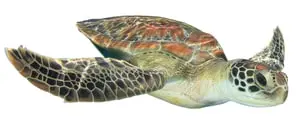Are you a DP2 student frantically searching for more CAS hours? Or are you an eager DP1 pupil wanting to get a head start on CAS before your assignments overwhelm you?
Either way – Lanterna has the perfect opportunity for you!
To help you with your CAS hours and collectively inspire us all to be more active in our individual communities, Lanterna is now looking for students who wish to contribute articles to our blog!
We are interested in posts focusing on your favorite CAS experience so far – perhaps you’ve done some volunteering at a local shelter, played in a sports tournament, or put on a theatre production you’ve really enjoyed? Regardless of the activity, the article should include the following:
- Your first name
- The school you attend
- Your DP year (DP1 or DP2)
- One activity that you have done for CAS
- What inspired you to do that particular activity?
- Would you recommend it to other students?
- A photo of yourself doing CAS (optional – but preferred)
What’s in it for you? We’ll sign this off as CAS – thus, ‘CAS 4 CAS’! Not only is this a great opportunity for students falling behind on their CAS hours, but you could possibly even write this in your personal statement for university!
To be considered, please email your article to info@lanternaeducation.com with the subject line: CAS 4 CAS. Please note that posts should be no longer 500-600 words!
An example:
Name: Julia
School attended: Hvitfeldtska Gymnasiet, Sweden
DP Year: Graduated in 2014 – I now work for Lanterna!
An activity I did for CAS: Fieldwork with sea turtles in Cape Verde!
Why did you choose this particular activity:
Spending summers on the west coast of Sweden, I’ve always loved being close to the ocean. In fact, one of my best memories as a child is sitting on the pier, fishing for crabs with my little brother. I think it was the constant flurry of crab fishing, seeing seals through binoculars and sailing which made me explore the possibility of doing some volunteer work involving the ocean during my Diploma. Thus, I began looking for opportunities for me to do my part to save our oceans. On a family vacation to Cape Verde in DP1, I came across a Biodiversity Organization which was looking for volunteers. I emailed them and the rest is history!
What did you do:
Cape Verde, a country which consists of 10 islands and is located off the coast of Senegal, is one of three places in the world where sea turtles go to lay their eggs during summer months. After a female sea turtle nests, she will return to the sea, leaving the nest to develop on their own. As sea turtles are endangered, it is crucial to attempt to track the longitude and latitude of sea turtle nests. Why, you ask? Tracking the longitude and latitude of the turtles’ nests ensured that volunteers could position protective nests around them when they were about to hatch, protecting them from predators. This is crucial as it is currently estimated that only 1 of 1,000 hatchlings (‘sea turtle babies’) will survive to adulthood! Doing this field work and seeing a female sea turtle lay her eggs is one of the most emotional and amazing things I’ve ever witnessed!
Would you recommend this activity to other students:
Absolutely – We should all be trying to do everything to save our oceans and the species which live in it!!
Read about inspirational CAS stories



